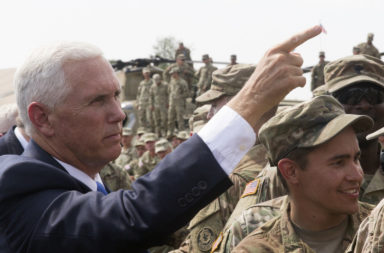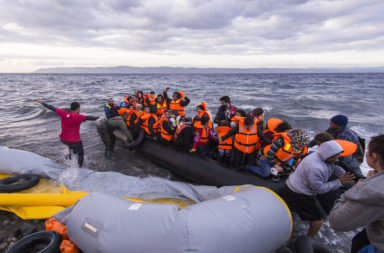Elections in the UK and France, along with last week’s announcement of visa-free travel to the EU for Ukrainians, are confounding predictions of a US-style conservative, populist swing on the ‘continent’.
- What is behind the recent surge in liberal success as seen in Britain, France and Ukraine?
- Erratic, silly and deeply uncool: how Donald Trump is destroying the wider conservative brand.
Just one year ago, the established narrative was that the West was swinging right. Populist, isolationist politics were set to dominate European politics and continue the movement of the alt-right that had swept Donald Trump into the most powerful position in the free world.
So why is Europe voting liberal again?And is Donald Trump the deciding factor?
Rallying Call for Moderates
Last month’s elections in France and Britain delivered stinging rebukes for hard-right politics. Britain’s UKIP lost every seat in local elections while Macron’s moderates routed Le Pen’s Front National, who won just 8 seats in parliament on Sunday in the French legislative elections.
In both countries, right-wing parties, including Theresa May’s Covservatives faded down the stretch of their election campaigns and then drastically underperformed on election day.
In Germany the right-wing Alternative for Germany has also lost support in polls for September’s German federal election, suggesting that a Euro-wide shift to the left is underway.
In every case, the right and hard-right have weakened from their position and there’s another pattern in who gains or loses support: the warmer a candidate’s relationship with Trump, the worse he or she has tended to do.
The Trump Factor
With a comfortable majority in parliament and 20 point lead in the polls, U.K. Prime Minister Theresa May developed a warm relationship with Trump as the first foreign leader to visit Trump in January, congratulating him on his “stunning electoral victory.”
Criticism from a largely anti-Trump UK swiftly followed as she was criticized for not pushing Trump following his withdrawal from the Paris climate accords on June 1 and starting a feud with the mayor of London after the terrorist attack in London Bridge just 2 days later. In the election, the Conservatives blew a 17 percentage point polling lead and promptly lost their majority in Parliament and put her position as leader in serious, serious doubt. Trump was not May’s only problem, but he certainly didn’t help.
Across the board, it was a poor election for the right, including the populist, anti-Europe UK Independence Party (UKIP) who failed to build on the 15 percent of the vote it won in 2015 to receive less than 2 percent and lose its only seat in Parliament.
Le Pen has also enjoyed a good relationship with Trump. Reciprocating praise that Le Pen had given, Trump expressed support for Le Pen after a terrorist attack in Paris in April and predicted that it would “probably help” her to win the French presidential election.
Last August, she’d enjoyed projections of 30 percent of the vote in the 1st round of the election but polling numbers fell in December and January and continued to slide before she was defeated 66 to 34 percent by Macron, a much wider landslide than polls predicted.
But the Trump factor also goes both ways, as several leaders who have been critical of the US president have discovered.
Angle Merkel has a fractious relationship with Trump, having been criticized at length and responded in kind, boosting her popularity in an effect her staff has half-jokingly credited as the “Trump factor” for the rebound in her approval ratings over the past year.
Donald Trump: Erratic, Silly and Deeply Uncool
Donald Trump’s incredibly poor reputation among average voters abroad is becoming a serious problem for conservative politicians.
Much was made of the ‘silent majority’ during America’s 2016 election race but for the European ‘silent majority’ Donald Trump has profoundly warped the conservative, right-wing brand.
Conservative identity was founded on an image of being the predictable, sensible choice to lead but, since the Trump administration took office the term ‘right wing politics’ is now associated more with a White House in meltdown, scandal-dodging and bizarre, sometimes embarrassing decision making from the POTUS and his team.
Trump is highly unpopular in Europe and candidates who have praised Trump have fared poorly and vice versa. His politics have become a subject of debate among candidates in Germany and the U.K and making major impacts on election day.
That his success was built on an anti-establishment image, the idea that Trump is now become a symbol of the establishment to millions of galvanized, dynamic Europeans is particularly ironic.
The Future of European Politics
This conclusion is by no means exhaustive. With major elections set to occur in eastern Europe, the true state of rightwing politics in Europe will become clearer over the next 6 months but the link to conservative decline in western Europe and the embarrassing behaviour of it’s most powerful leader is compelling.
The timing speaks for itself: in general European right-wing parties had been gaining ground in elections until the months following Trump’s election and now we have several examples of their decline.
It seems that the deep unpopularity of Donald Trump is making Europe liberal again and uniting previously fragmented leftist groups with moderates.
Photo:DPA





